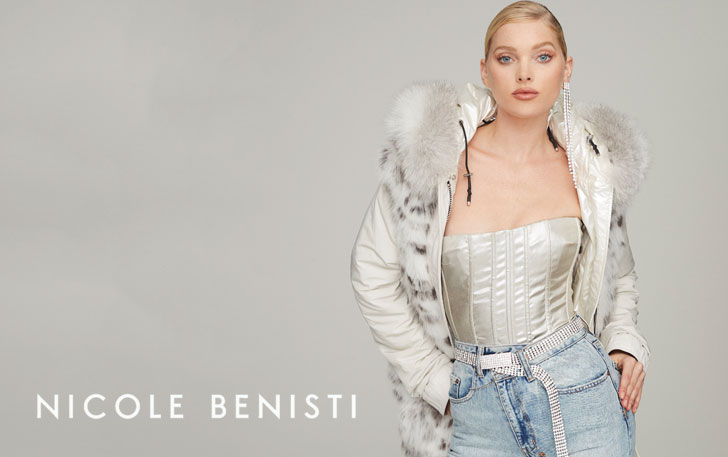At the intersection of natural materials science and commercial fabrication is one of the borough’s most original designers
By James Tate
Biomimicry may not be the first term that leaps to mind when one thinks of interior design, but Brooklyn resident, business owner, and award-winning designer Danielle Trofe is perfectly at home in the organic intersection of materials science and commercial fabrication; together, they generate her beautiful, sustainably produced home products. Her Brooklyn studio’s mission is to promote a function-forward and socially responsible approach to furniture and lighting design, and its work has been showcased by BMW, the Brooklyn Botanic Garden, and currently the 1 Hotel Brooklyn Bridge, among other clients.
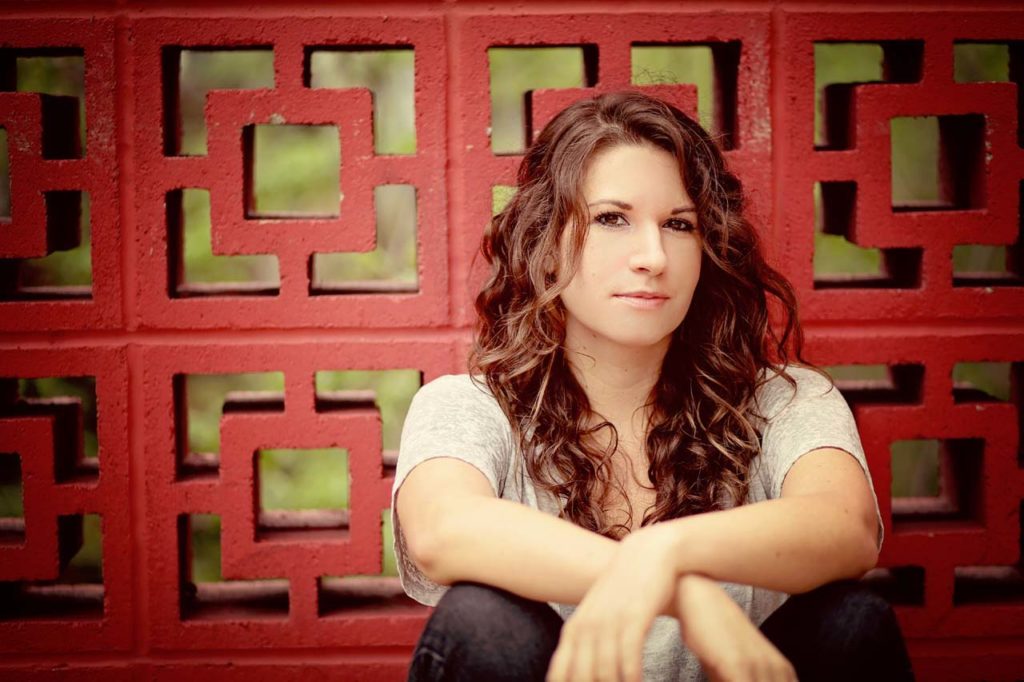
Biomimicry, in which Trofe is presently completing a master’s degree, can be thought of as a way of looking at nature like a catalog of products that have benefited, she said, from a 3.8 billion year period of research and development.
“We as humans only have a couple of hundred-thousand years of fine-tuning our intellects,” Trofe explained. “[Biomimicry] looks at nature’s strategies and functions to solve our human challenges in a more sustainable way. I try to encourage and inspire a questioning of what our objects are made from.”
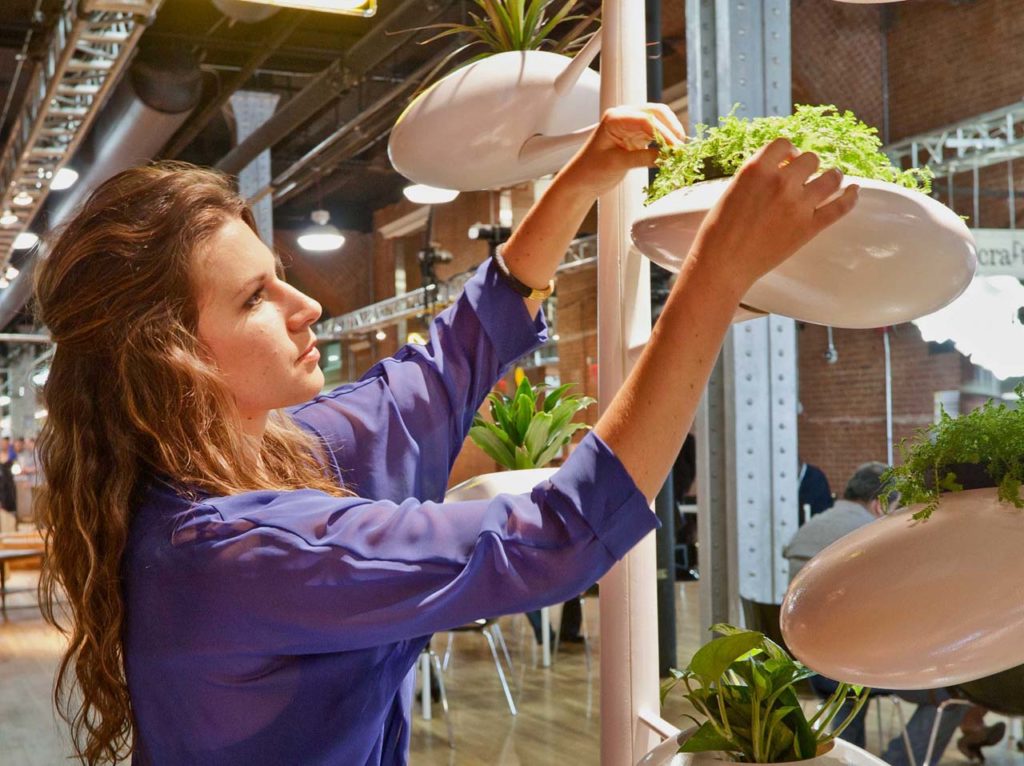
Trofe’s MushLume lighting collection, for example, is a series of handmade fixtures fabricated from a technology that uses mycelium, more often called mushrooms (yes, mushrooms), as its primary medium. (“I was one of the first who saw the material and just absolutely loved it for what it was. I wanted to bring it to the lighting and interiors world,” she said.)
In 2011 Trofe partnered with New York enterprise Ecovative, based outside of Troy, to source the materials for her pieces from state farm owners. Before meeting Trofe, Ecovative’s focus was not on design.
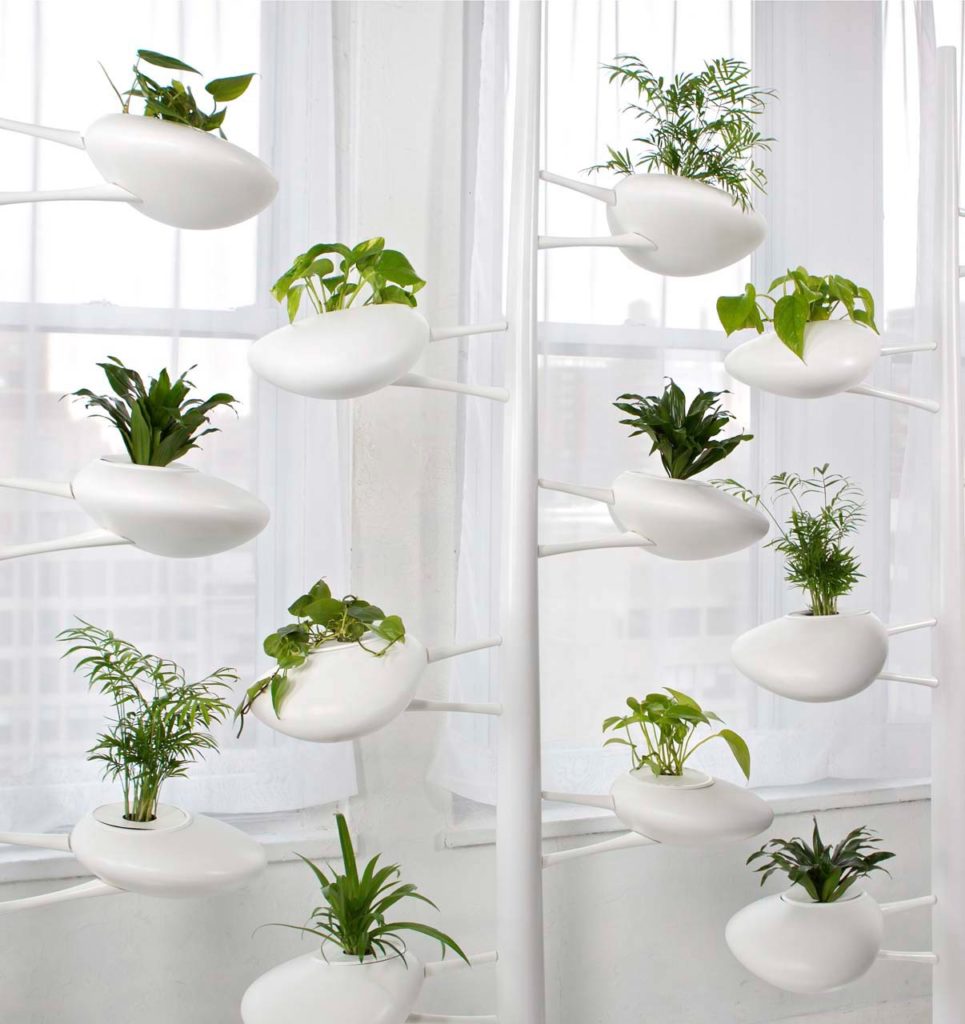
“They were using mycelium mainly as a packaging product—as a replacement for styrofoam.” Buying her material from Ecovative in bulk, just as a gardener would, she said, “you’re up-cycling a product from local farms, comprised of hemp and corn stalks, and combining it with mycelium, one of the most rapidly renewable materials in the world.”
Trofe’s pieces are handmade and individually produced.
“My largest lampshade, a 24-inch dome pendant, takes about a ten pound bag,” she said. “It probably takes about ten days, in total, to grow. You think about wood…we’re waiting 50-100 years for a tree to be able to be milled. And there’s so much energy that goes into these processes. Using mycelium, you’re adding very little water and only heat at the end within the process. You’re tapping into the power of nature.”
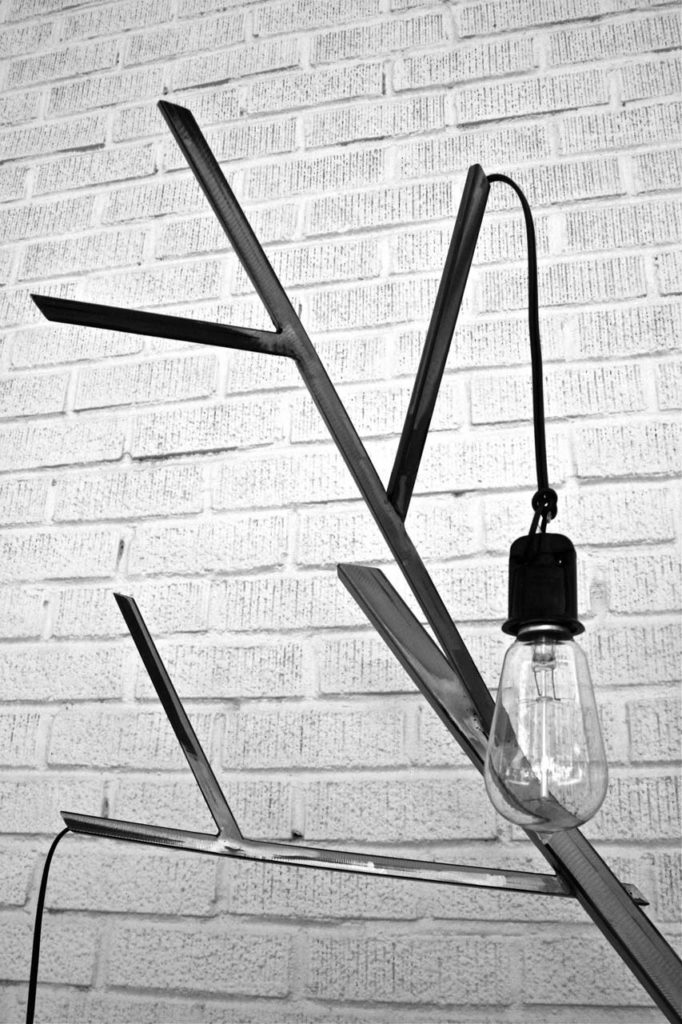
In Trofe’s studio, ten days yields a rapid harvest, and the present landscape of local, on-site fabrication laboratories (or “fab-labs”) opens doors to the sort of innovation that Trofe Design is capitalizing upon, and that hasn’t always been available.
“The maker-movement has made enormous strides in just the last five years,” she said. “If you want to make an object, you can go just around the corner to a fab-lab. What propelled the studio was fabrication and getting one-offs and prototypes made, in a way that was really accessible in Brooklyn and in New York City.”
The advent of consumer-accessible 3D printing has been a gateway for Trofe and innovators like her. “Before 3D it was woodworking or metalworking,” she said, “with this more skill-oriented and hands-on DIY with expensive tools. 3D printing has really lowered the barrier to making.” But while 3D-printed forms are used for some designs, many of Trofe’s pieces remain handmade. “There is a great value in handcraft,” she said. “From working with this material and molding every single lampshade that’s come out, there is a meditative process that does add benefit for me.”
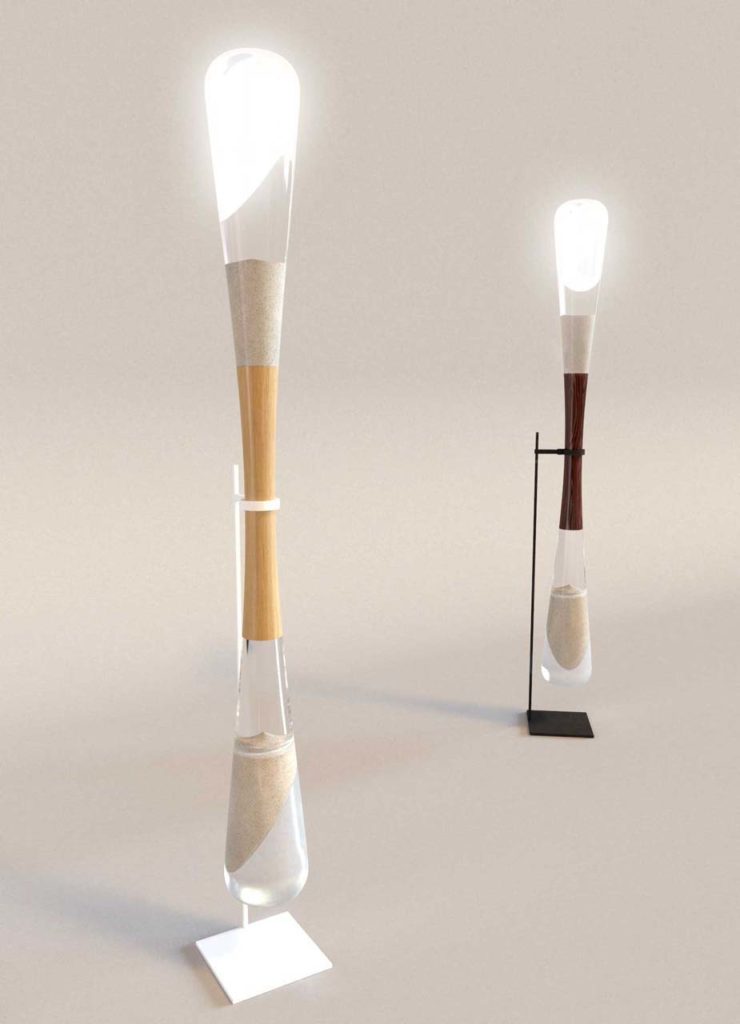
At this point Trofe is the primary maker at work in her studio. “For BMW, we worked with a production team, and I’m working with a second party for 1 Hotel and to commercialize our new line of lighting. (While we were speaking, we she was in the midst of installing 125 individually grown lampshades at the now-open 1 Hotel Brooklyn Bridge). But for full-time staffers? At the moment, it’s just me.” For now that means that each pendant, each lamp is hand-touched—actually grown and harvested by the owner.
Trofe recently expanded her studio into a new showroom (or “grow-room,” as she describes it) in
Brooklyn’s Industry City, a 16-building complex on the Gowanus waterfront that has developed within the past decade’s revitalization of Bay Ridge and Sunset Park.
“It’s quite gorgeous: spacious, with amazing windows,” she said. “They’ve created a wonderful community there of start-ups, manufacturers, artists, and designers.” Among other upcoming projects, she has redesigned a signature vertical garden built on the principle of hydroponics and featured in the BMWi Born Electric tour. “I’ve waited for a material and process to advance enough to be able to move into production to commercialize it. That will come out, we hope, by the end of this year.”
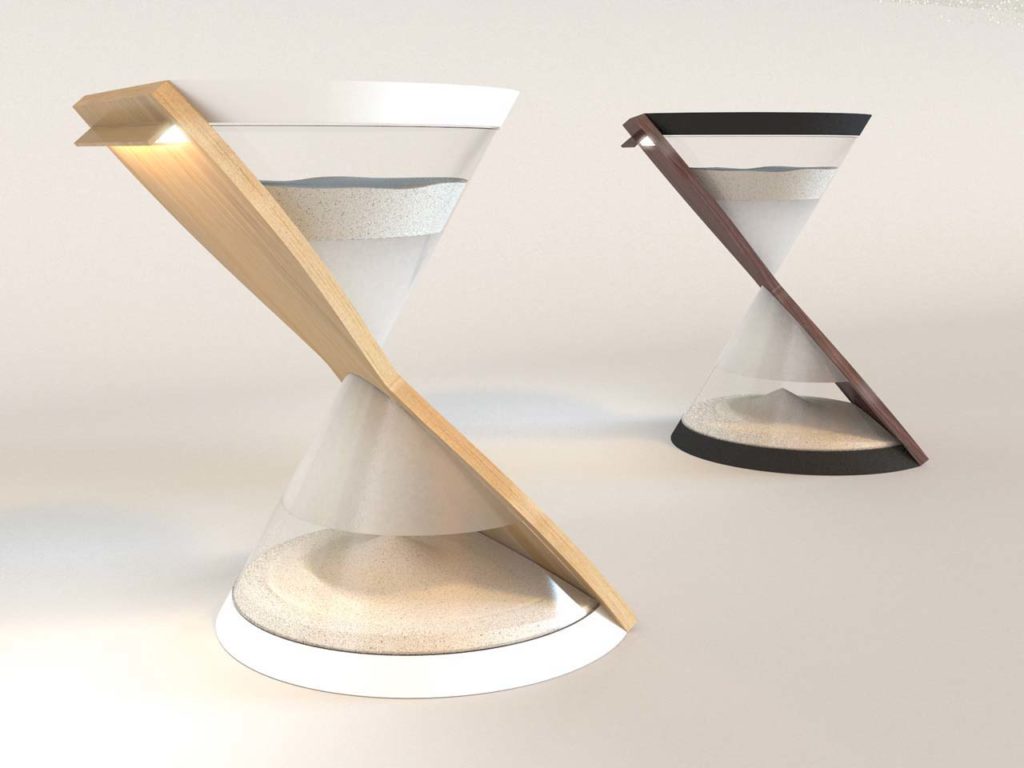
She is also an energetic advocate for mycelium and her partner, Ecovative. (“It’s been a journey of educating consumers about what the material is, especially in this industry,” she said.) Her ambassadorship has led to speaking events at the Low Line in Manhattan’s Lower East Side, and at the New Lab in the Brooklyn Navy Yard. “We’re looking to continue the education and host more workshops moving forward. Stay tuned.”
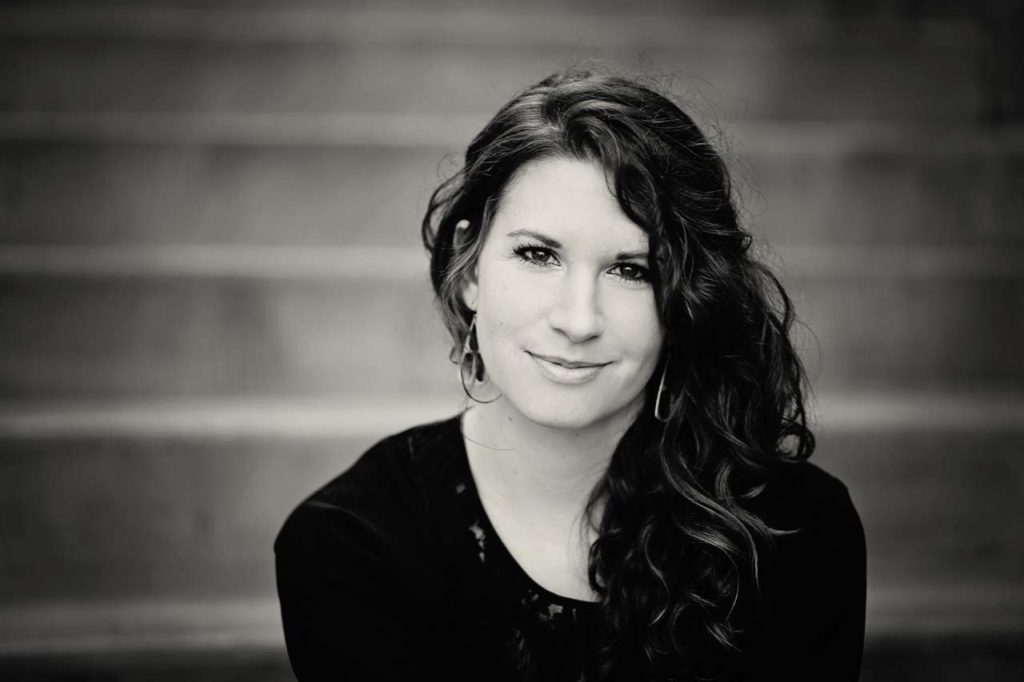
Danielle Trofe Design Studio
253 36th Street, C301 / 347.946.2712 / danielletrofe.com
